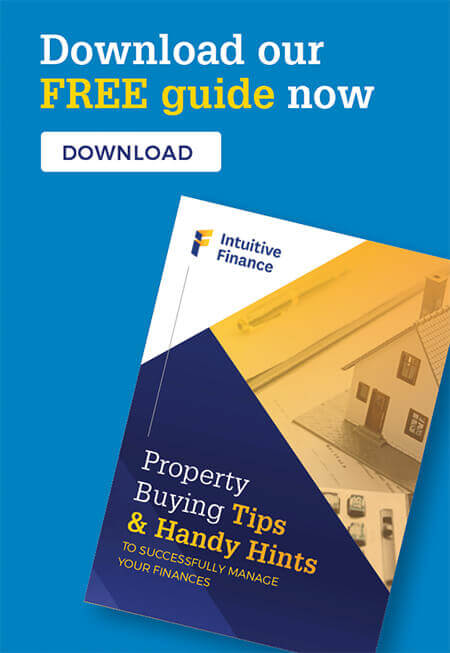Buying a new property – whether it’s your first home or your 10th investment property – is always an exhilarating experience. But in the excitement of your new real estate prospects, it is important not to rush past the important bits. Remember, it’s the job of a real estate agent to put the pressure on you to sign contracts and get locked in. A property might look good at an open inspection but sometimes nice aesthetics can disguise real estate nightmares.
What is the contract of sale of real estate?
The contract of sale is part of a series of legal documents you’ll receive upon purchasing a property. It’s the first document you’ll sign after your offer has been accepted by the seller and simply sets out the terms and conditions of the purchase.
In the contract of sale, you’ll find:
- The conditions of the purchase
- The property’s address
- The name of the vendor and the purchaser (that’s you!)
- The deposit that needs to be paid
- The accepted offer price
- The date of settlement
- And whether the property will be vacant or subject to lease
But before you sign this binding contract, it’s important to think clearly and get the facts straight. This is an emotional time but asking yourself these three questions will help you determine if you’re making a smart financial decision – or save you from make a poor one!
Have I done my due diligence?
In order to avoid real estate nightmares further down the track, it is important that you find out as much as you can about the property that you’re making an offer on. In order to conduct your due diligence, you may need to employ the expertise of a solicitor or a conveyancer.
There are three major areas you should consider while conducting your due diligence. The first of these is looking at the structural integrity of the house. A building inspection will highlight any problems in the house which might not necessarily be evident to the naked eye. Whilst this inspection might set you back a few hundred dollars it’s well worth spending it to save yourself paying hundreds and thousands of dollars on a building that needs serious repairs.
The vendor is also responsible for providing you with a statement of important technical information about the property. Use this information to understand exactly what your money is buying. In this document, you should be able to see information about the building plus any garages or car spaces, documents from the local council detailing developments to adjoining properties and documents from utility providers presenting any easements over your land.
The final consideration in conducting your due diligence is making sure you have sufficient funds to pay by the settlement date. If the agreed settlement date is 30 days and you’ve failed to secure the money from a lender within that time, the vendor can legally take your deposit.
Have I read and understood the Section 32?
The Section 32, also known as the vendor’s statement, should have been revised when conducting your due diligence, but it cannot be stressed enough how important it is to understand this document. It would be highly recommended to sit down with a solicitor and consider the following variables.
Copy of the title – This tells you exactly what is on the title. If you’re purchasing a property that has already been subdivided sometimes what you see isn’t necessarily what you get. This section will help you get to the bottom of what will really be yours.
Zoning certificate – Is the property you’re purchasing residentially or commercially zones? Make sure you know this before you decide on any big plans.
Outgoings – it’s important to know any rates you’ll have to pay or body corporate fees if you’re looking at an apartment or townhouse. These costs will all add up when you consider the repayments you’ll be making on the loan.
Building permits issued in the past 7 years – This section is extremely important to ensure that all works on the property have been done legally and will be structurally sound. Any renovations or works that did not receive the proper building permits should be raising red flags for you.
Most recent lease agreement – This applies to investment properties and is very useful for understanding how much to expect in rent each month. If you set the rent much higher than the previous owner, you might struggle to find tenants.

Have I consulted with the experts?
If you don’t know what exactly you’ll be doing with this property – perhaps you’ll hold onto it for investment and watch it grow, subdivide and develop on it or build your dream home – it’s a good idea to have a solicitor review the documents for you. This way you know what your options are and keep them open. This is particularly important if you are thinking of developing a property. Easements, covenants and caveats are all terms you need to understand identify – fail to do this and you could be looking at a property with no potential. Having both the contract of sale and section 32 reviewed by a solicitor before you sign will help you better understand any unacceptable terms and how best to negotiate these.
If you’re ready to purchase that next property, it’s an occasion worth celebrating. But the important thing to remember is not to get swept up in the excitement and pressure of the process. Step back, do your reading and talk to the experts.
- Don’t hold your breath for a rate cut (but we also won’t see any further increases in 2024) - February 1, 2024
- Is Victoria’s housing supply about to get better – or worse? - November 20, 2023
- How to avoid a Christmas financial hangover - November 15, 2023









8 Comments. Leave new
Hi Andrew, I’m selling my property, my exclusive agent did all the advertising job and I paid for it. Now I’m willing to sign open contract with as many as possible another agents because I do believe that the agent who “brings the buyer” deserves full commission not only percentage. So, why my intentions are ignored and I’m advised to sign exclusive with three I did approached.
Is there something I’m not aware off? Thank you for enlightening me.
Thanks in advance
Chez
Hi Chez,
Most/all real estate agents want “exclusive” rights to sell your property so they maintain their own commission. This is the main reason why they won’t allow more options to sell it, purely selfish reasons.
Selfish? Why would a REA want to sell a property that is being marketed by others? How can you create a marketing plan or manage the potential buyers like this? You need to find the right REA agent for you, based on the conditions that you wish to sell.
That’s right Stevie.
Normally a selling agent will have an exclusive sales period in any case.
Hi Andrew, I am renting property which according to Real estate agent( from which i am renting) is going to be sold. However my landlord is overseas and he can not be contacted easily by me. Do you think that the Real estate agent can advertise the property for sale and open inspections without property sale agreement. Also how can I request that I need to see property sale agreement. I am asking this because the agent offer me one year term lease agreement so I don’t know what to expect if I sign such long term rent agreement and open inspections been done trough it.
Thanks for your enquiry, some really great questions here.
Unfortunately I don’t know the answers.
I’d recommend you seek advice from the agent and/or look at QLD law about your rights.
Hello sir,my neighbour wanted to build townhouse and because of our tree they can’t get insurance so they want us to cut tree.they even hire lawyer and threating us through him that our tree is dangerous . What should I do . I live in Melbourne Australia.
I think you need to seek legal advice in relation to this query Ravneet.
Good luck!